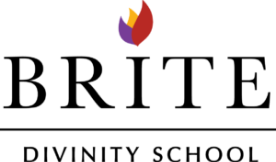RIGHTS AND RESPONSIBILITIES
Brite Divinity School is committed to educating people for church, academy, and public life in a complex world, while promoting the values of free inquiry, intellectual integrity, ecumenicity, and diversity. The students, staff, and faculty of Brite are called into a community that engages mutual respect and the highest standards of personal, corporate, and academic integrity.
Student Rights
The following student rights are illustrative of Brite’s commitments and are reflected in the policies and procedures of the institution:
Nondiscrimination and Inclusion: In accordance with Brite’s Nondiscrimination and Inclusion Statement all students, faculty and staff of Brite have the right to expect inclusionary policies and processes. Brite’s nondiscrimination and inclusion policy extends to its adherence to Equal Employment Opportunities and is encompassed in the above statements.
Freedom from Harassment: In accordance with Brite’s Nondiscrimination and Inclusion Statement, and alongside expectations of the Federal government through Title IX, Violence Against Women Reauthorization Act and Campus Sexual Violence Elimination Act (VAWA and Campus SaVE), all students, staff, and faculty at Brite have the right to be free from harassment (sexual, racial, gender, able-bodied, etc.). Policies and procedures can be found under the Title IX section in the Codes of Conduct.
Open Door and Grievance: All members of the student community are free to seek information from staff and faculty members responsible for any aspect of community life on any matter that is troubling to them, or to call attention to any condition that may appear to be operating to their disadvantage or the disadvantage of the Divinity School. A list of appropriate staff and faculty members responsible for various aspects of community life can be found on the Brite website (www.brite.edu)
Student Records: Brite Divinity School abides by the Family Educational Rights and Privacy Act of 1974 (FERPA), a federal law which provides that the Divinity School maintain confidentiality or student records. More information can be found under Academic Information and Policies.
Students with Disabilities: Brite Divinity School and Texas Christian University affords students with disabilities reasonable accommodations in accordance with the Americans with Disabilities Act and Section 504 of the Rehabilitation Act. To be eligible for disability-related academic accommodations, students are required to register with the TCU Office of Student Access and Accommodation and have their requested accommodations evaluated. If approved for accommodations, students are required to discuss their official TCU Notification of Accommodation with their instructors. Accommodations are not retroactive and require advance notice to implement. The Office of Student Access and Accommodation is located in The Harrison, Suite 1200. More information on how to apply for accommodations can be found
at https://www.tcu.edu/access-accommodation/ or by calling Student Access and Accommodation at (817) 257-6567.
Academic Evaluation: Students have the right to academic evaluations which are neither prejudiced nor capricious and which are based on stated class requirements. These requirements are place in each individual course syllabus.
Written student complaints: Students have the right to submit written complaints that include: written grade appeals; written concerns or grievances against faculty and staff; written complaints by students against students for non-academic violations of the Code of Conduct; and written complaints related to Title IX (Gender, Sexual Harassment).
Institutional Accountability
Brite Divinity School is accountable to its students, denominational and academic constituencies, as well as to accrediting agencies and the federal government to maintain policies and procedures that reflect
academic and institutional integrity. The following are illustrative of Brite’s commitments and are reflected in the policies and procedures of the institution:
Policies and Procedures: Brite Divinity School will maintain, to the best of its abilities, the various policies and procedures that reflect the commitments named in our mission statement as well as our nondiscrimination and inclusion statement. In addition, we seek to remain informed on federal and state mandates related to the educational mission of the institution. All policies and procedures can be found on the website (www.brite.edu). They are available in print, as requested. It is the expectation that every student, staff, and faculty member will abide by the policies of Brite Divinity School as well as by the various policies of Texas Christian University, where applicable. TCU’s policies can be found on the TCU website (www.tcu.edu).
Provision of Qualified and Committed Members of the Staff and Faculty: Brite Divinity School seeks the highest standards of expectations for the members of its faculty and staff. We remain committed to the policies of tenure and promotion, as evidenced in our Governance Manual and to the careful selection, support, and training of adjunct faculty. Likewise, we commit ourselves to the careful selection, support, and training of our staff.
Safety and Security: Brite Divinity School is committed to providing the safest and most secure campus possible for its faculty, staff, students, and guests. Brite’s affiliation with Texas Christian University, along with policies established by the federal government (the Clery Act, for example) require that we report to the TCU police such things as: incidences of verbal or physical violence to self or others, warnings about suicide or homicide, sexual and domestic violence, and other infractions as noted on the TCU website (http://police.tcu.edu). All incidences of crime are reported to the federal reporting agencies through TCU’s collective report. Guests on campus are also expected to abide by TCU and Brite policies.
Academic Freedom and Integrity: The role of academic freedom in an educational institution such as Brite is central to our mission. Students, staff, and faculty exercise the freedom to openly inquire about matters of intellectual concern. Policies related to academic integrity include attention to concerns of plagiarism, inclusive and respectful use of language in the classroom and on campus, and appropriate standards for classroom conduct in order to foster the ongoing activities of education.
Student Responsibilities
Brite Divinity School encourages optimal educational opportunities by fostering various standards and policies that contribute to the learning and teaching process in the classroom and on campus. Students are responsible for recognizing not only the above-named institutional accountabilities, but also for attending to individual student responsibilities, such as:
Common Life Policies: Students are expected to know and adhere to the various policies outlined in Brite’s Student Handbook. These policies can also be found online. In addition, students are obligated to adhere to various TCU policies (library usage, use of facilities, involvement in TCU activities, campus safety and security, etc.). Students are also responsible for guests they invite to campus and for their adherence to policies. Violations of policies will be subject to disciplinary action.
Financial Obligations: Students are expected to meet financial obligations in accordance with policies established by Brite Divinity School and Texas Christian University. Students involved in the Federal Loan process shall work with the Office of Financial Aid at TCU and abide by their policies (http://financialaid.tcu.edu/).
Academic Conduct: Maintaining academic integrity rests at the core of the educational process and students are expected to know and abide by Brite’s Code of Academic Conduct as identified in the Student Handbook.
Standards of Professional Behavior: Students at Brite Divinity School are responsible for maintaining appropriate professional behavior. This includes activities conducted in field placement and supervised ministry settings. Brite does not tolerate disruptive behavior and/or harassment. See policies related to Disruptive Behavior, Lack of Academic Progress, and the Brite Student Code of Conduct in Brite’s Student Handbook.

